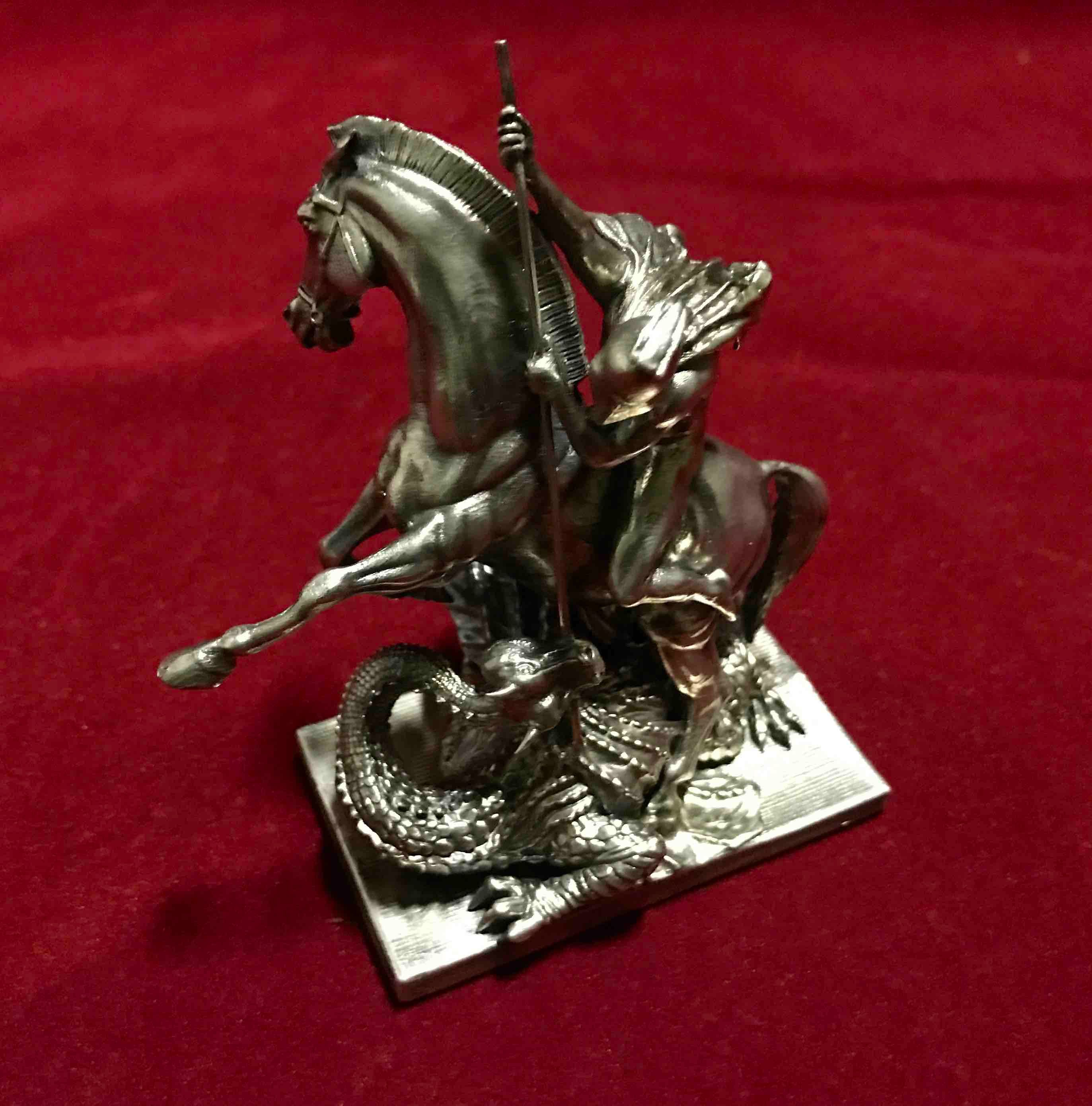St George and The Winged Serpent (Dragon)
The prompt causes of both the picture and legend of St George the Dragon Slayer lie in Near Eastern survivals of Graeco-Roman culture where the saint/victor picture of a mounted lancer was generally utilized on coins and reliefs and was likewise utilized as a majestic indication of energy.
The connection to the clique of the Christian saint, the third-century military administrator George of Cappadocia, was an immediate consequence of the First Crusade: the vision of St George participating in the Battle of Antioch in 1098, recorded by William of Malmesbury in Gesta Regum, set up a fiery religion of St George among the crusading knights, with the sanctum of the holy person at Lydda – arranged in the zone held in Greek mythology as the area where legend Perseus protected Princess Andromeda from an insidious ocean serpent – turning into a position of unique reverence for them.
By the thirteenth century St George the Dragon Slayer had picked up the red cross of a crusader as a component of his iconography and, speaking to the triumph of good over malevolence, wound up noticeably one of medieval Europe's most noteworthy legends. In England, he turned into the national supporter holy person, and the chivalric faction of St George finished in the Order of the Garter established, in 1348, by Edward III with its official asylum in the Chapel of St George at Windsor Castle, and with its symbol containing the identification or gem of St George killing the winged serpent.

St George and the Gold Sovereign
St George killing the mythical serpent was the picked subject for the new gold sovereign that made its introduction in the late summer of 1817. Bound to end up plainly one of the world's best-cherished coin outlines, it was made by the Italian diamond etcher Benedetto Pistrucci who had come to London in 1815 and whose ensuing relationship with the Royal Mint achieved something of a brilliant time in numismatic workmanship.
Pistrucci's way to deal with the plan spoke to a reviving takeoff from past gold coins whose style had been customarily heraldic. It appears he may have discovered motivation in the wonderful Elgin Marbles, the lovely marble carvings that Thomas Bruce, the seventh Earl of Elgin, got to England the mid 1800s.

The fancy frieze initially adorned the Parthenon in Athens and showed somewhere in the range of 400 human figures and 200 creatures that appeared to participate in an energetic parade. The horsemen give a brilliant impression of development, their face and body demeanors passing on a feeling of ability and certainty, as they effectively hold their stallions under firm control.
Pistrucci's St George is unequivocally reminiscent of these marble help designs, his stallion embracing a forceful state of mind towards the injured winged serpent yet easily held under control by his lord. His outline of a stripped Greek horseman mounted on a Parthenon-style stallion is, without a doubt, one of incredible exemplary magnificence and many would even now concur with Humphrey Sutherland who, in his book Art in Coinage (1955) pronounced it one of the noblest developments in English coin plan from 1800 to the present day. To the joy of gatherers, specialists and students of history, it proceeds on the gold sovereign right up 'til the present time.
A Legend is Born
st. George is a legend!!!
Wow! Thank you for this explanation. I was not aware of all of this.
hopefully next month I can order that, sweet!
Great review, though the other side of the sovereign in the photo would make more sense ;)
It,s a sweet piece to own, quite a value to have.
Those are two beautiful pieces i am a huge fan of coins but the statue would look great too your a great guy and ty for being so generous
Another very good lesson of History and Coins. Thanks. SOV.
Really nice piece and great detailed explanation from Regal!
Sov.
very well explained regal, Sov.